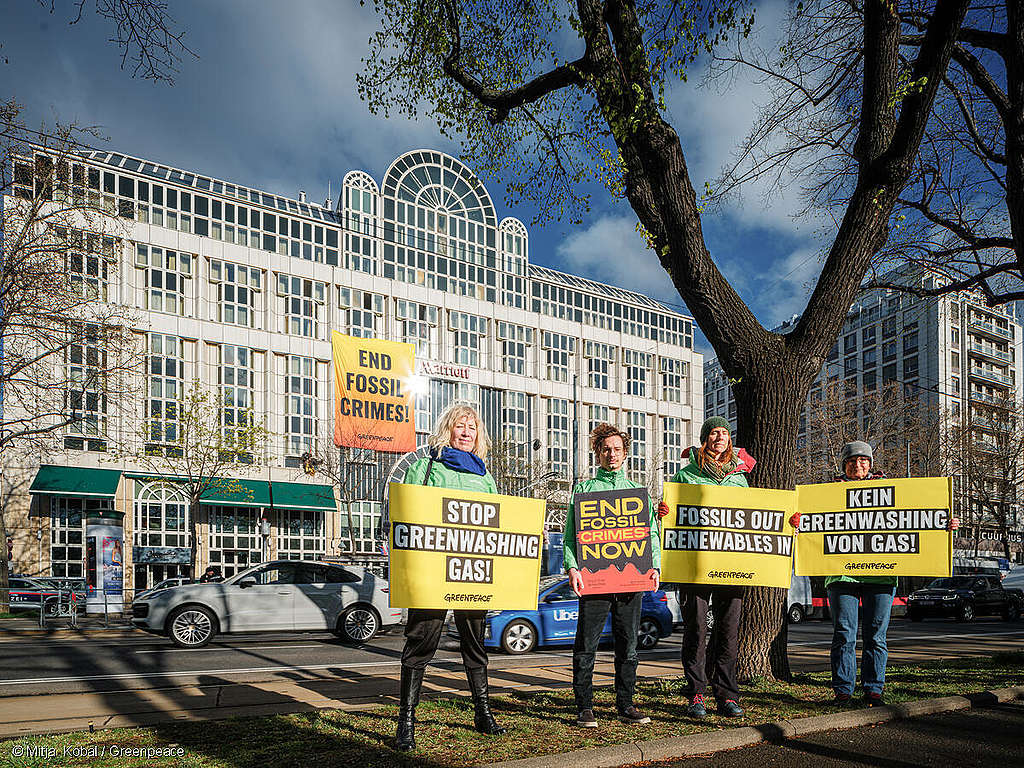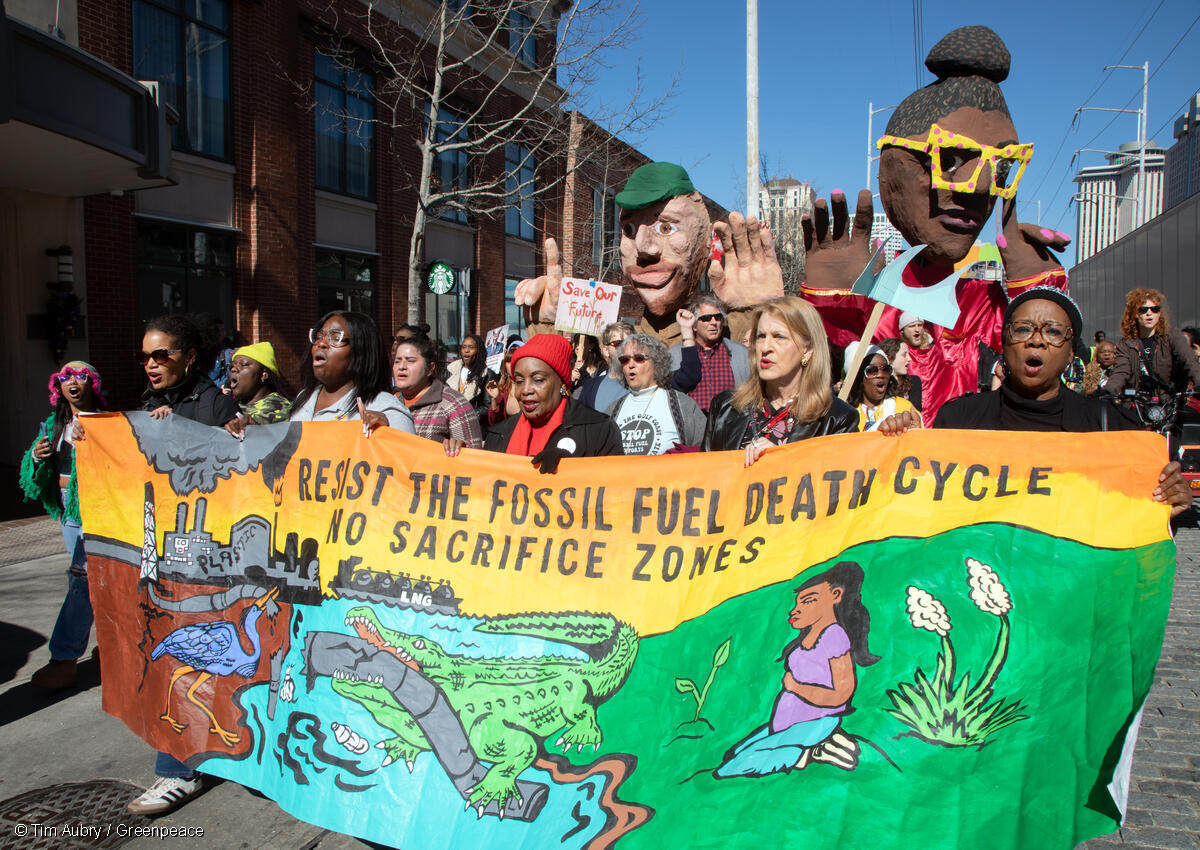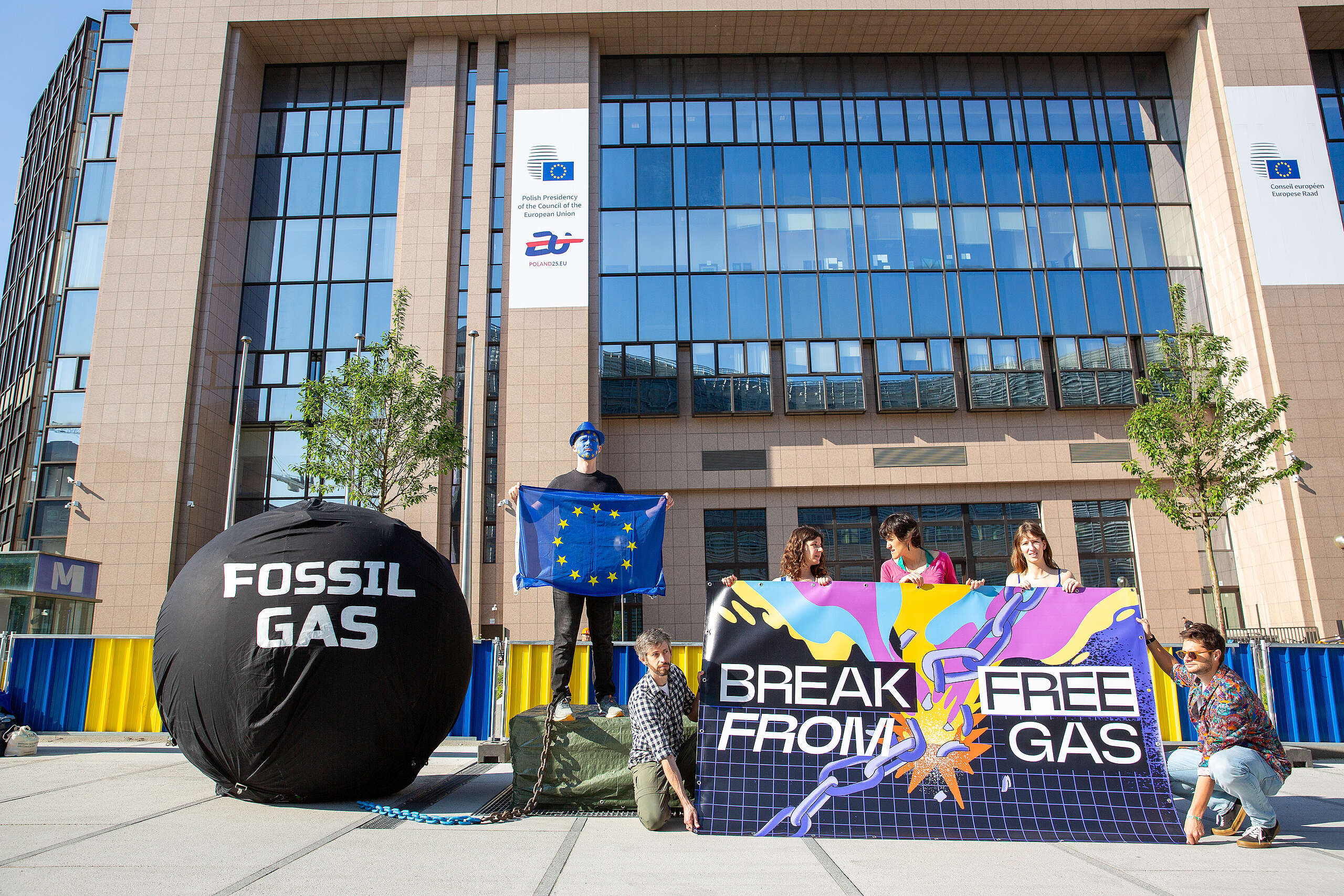Brussels – EU energy ministers meeting in Brussels today failed to agree a date for the phase-out of fossil gas ahead of negotiations with the European Parliament on a pair of draft EU laws governing the gas market.
The agreement comes as a broad alliance of European climate groups protested against the European Gas Conference, a private fossil fuel industry event in Vienna, hosted by Austrian oil and gas company OMV.

Governments also agreed to a one-year extension of a non-binding target to reduce fossil gas use by 15%, which they adopted last year as gas and energy prices climbed to record highs.
Greenpeace EU climate and energy campaigner Silvia Pastorelli said: “Reducing gas use in the short term is necessary and right, but it must be part of a long-term plan to get Europe off fossil gas completely, and by 2035 at the latest. Instead of a phase-out, EU governments want to keep gas flowing indefinitely, wastefully blended with hydrogen, and keep the fossil fuel industry involved in the decision-making. It’s hard to believe these ministers are serious about shifting Europe to renewable energy and avoiding climate breakdown when they can’t even agree that gas has to go.”
The ministers’ “general approach” to the upcoming negotiations on the gas rules does not include a highly controversial suggestion by France and others to allow some fossil-based hydrogen and nuclear-based hydrogen to count towards EU renewables targets. While this proposal did not make the final cut, a new proposal is being circulated to energy ministers to include a compromise on the matter in tomorrow’s negotiations on the Renewable Energy Directive. Austria, Belgium, Germany, Denmark, Estonia, Spain, Ireland, Luxembourg, the Netherlands, Lithuania and Latvia and Portugal oppose the French-led coalition.
Other key points from EU governments’ general approach on the EU gas rules include:
- Low-carbon definition: governments have agreed that hydrogen with at least 70% less lifecycle greenhouse gas emissions relative to fossil gas count as “low-carbon”.
- Blending: governments want to allow mixing hydrogen with fossil gas, up to 2%. This offers a lifeline to the gas industry and will slow down the phase-out of gas, in addition to being a waste of hydrogen while it should be treated as a scarce resource.
- Governance: governments confirm that they will continue to allow the gas industry to model and plan the gas network and future hydrogen network, instead of entrusting these responsibilities to an independent body. Since this is also the position of the European Parliament, it means that the fossil fuel industry is now set to retain its problematic role in EU decision-making around gas and hydrogen infrastructure.
- Consumer protection: governments introduced new provisions aiming to protect consumers when moving away from fossil gas at the household level
Greenpeace is calling for the 15% gas reduction target to become mandatory, in view of a complete phase out of gas by 2035. Greenpeace is also calling for the reduction targets to be extended to other areas like oil and electricity in order to tackle energy waste, and for measures that not only save energy, but also protect people from energy poverty, like insulation schemes and affordable public transport.
Next steps
Now that national governments have finalised their negotiating lines, negotiations between representatives of the European Parliament, Council and Commission may begin.
MEPs already agreed their position on the gas rules in February. The Parliament’s position also does not include a phase-out date for fossil gas in the EU.
Contacts:
Silvia Pastorelli, Greenpeace EU climate and energy campaigner: +32 496 12 20 94, [email protected]
Greenpeace EU press desk: +32 (0)2 274 1911, [email protected]
This press comment is also available on: www.greenpeace.eu
For breaking news and comment on EU affairs: www.twitter.com/GreenpeaceEU
Greenpeace is an independent global campaigning network that acts to change attitudes and behaviour, to protect and conserve the environment and to promote peace. We do not accept donations from governments, the EU, businesses or political parties. Greenpeace has over three million supporters, and 26 independent national and regional organisations with offices in more than 55 countries.
EU Transparency Register: 9832909575-41



